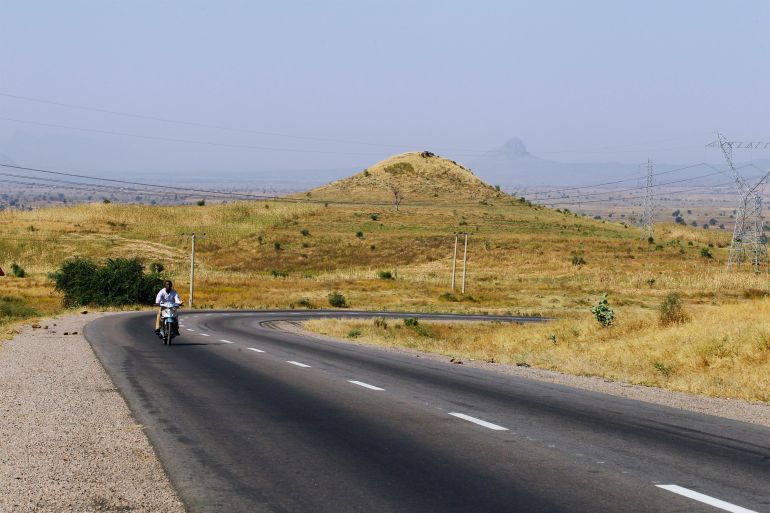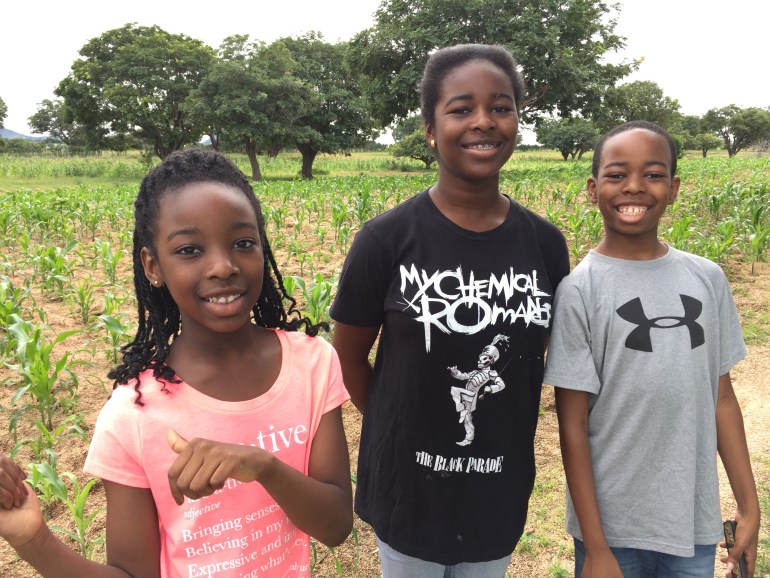The land we came from: The green hills of Kaltungo
I grew up in the city, with concrete sidewalks and tarred roads, and for me, the village was an endless adventure.

In this series “The land we came from”, we asked writers to reflect on the environment they grew up in and how it has shaped their lives. Here, author Helon Habila recalls the stories his father told him of growing up in Kaltungo in northeast Nigeria, a beautiful landscape, with a horseshoe of hills surrounding the town, a place he himself has fond childhood memories of.
I did not know my father’s exact age. But I know that he fought in the second world war in Burma (now Myanmar) when he was about 18 years old, and that he died in 1989. If he was about 18 during the war in the early 1940s, that means he was probably born sometime around 1924. That would have made him about 62 when he died.
Keep reading
list of 4 itemsThe land we came from: The Southern Appalachian Mountains
If the Earth could speak: A cedar tree
If the Earth could speak: A boulder
He also fought in the Nigerian civil war, from 1967, the year I was born, to 1970. He had post-traumatic stress disorder (PTSD), which was undiagnosed because no one knew what it was at the time. It affected him all his life, manifesting in mood swings – from occasional bouts of temper to a tendency to be withdrawn and introverted.
But this is really not about my father’s military service, it is about the stories he used to tell me when I was a child. Yes, he was a great storyteller. His best was about how he ran away from home when he was roughly 15, in 1938 or so.
My father was born in Kaltungo, Gombe State in the northeast of Nigeria. It is a beautiful landscape, with a horseshoe of hills surrounding the town, and in the distance – its peak sometimes covered in clouds – the highest hill in the region, Mount Kilang, rising above 1,000 feet (300 metres) above sea level. All around, towering over the savannah grass are palmyra and locust bean and shea butter trees.
My grandfather, whom I never met, was a rich land and cattle owner, with many wives and many sons and daughters; my father and his brothers were tasked with looking after the cattle, which often meant spending their entire day in the bush. In the farming season, however, their days, and sometimes their nights, were spent on the farm chasing away the birds that would otherwise eat all of the grains before they were harvested. Clouds of quelea birds would swoop upon a farm and in their wake would be a much-diminished field, leaving nothing for the farmer to take home. Whereas other children were content to spend their days on the farm, something was always pulling my father away.
He had been following the progress of the white missionaries in the village, they had built churches and schools and were teaching young men and women how to read and write. My father would often hide outside the Sunday school building to listen to the reading and writing lessons; he was endlessly fascinated by the songs and Bible lessons. He never worked up the courage to enter because he knew how much his father, a respected traditionalist, hated the new ways and viewed the white missionaries as a blight that would soon go away.
One day, my father was caught loitering outside the church building by his father, and as punishment was banished to the farm for weeks. That was when he decided to run away.
He had heard that the missionaries were planning to travel to Jos, their regional headquarters, which was about 500km (311 miles) away, and he was determined to follow them. He snuck out early in the morning and followed them from a distance.
To get to Jos the missionaries had to walk through dense bushes and across rivers to the nearest big town, Gombe, about 75km (47 miles), a journey of about two days, from the village. Today, that journey would take about an hour by car, but there were no cars then and because of the danger from bandits, tribal enemies and wild animals, people travelled in groups, and only when they had to. From Gombe, the missionaries would take a truck or a bus to Jos.
I imagine my father, 15 years old, following the white men at a distance, careful not to be discovered, sleeping under trees and watching their campfire at night, trying to ignore the hunger in his belly, the call of hyenas and other wild animals. On the second day, he was discovered by the white men’s scout, and they took him along with them. They found a willing convert to Christianity in him, and he ultimately ended up working for them as their servant. When World War II broke out and the British Empire was conscripting fighters from its African and Asian colonies, the white missionaries encouraged my father to enlist.
That was how he left his village and ended up serving in World War II. After the war, he made his home in the city, only returning to the village for occasional visits.

I was born in the city, and my father took me and my brothers to Kaltungo for the first time when I was about seven. On that visit, I saw what my father must have seen when he was growing up. The wild geese flying out of the bushes, the nearby river that often overran its banks in the rainy season, sometimes wrecking the flimsy footbridge that floated over it. We used to gather on the river bank after a big rain just to watch the water flowing and wreaking spectacular damage on the maize and sugarcane fields along its banks.
I grew up in the city, with its concrete sidewalks and tarred roads, and for me, the village was an endless adventure. I had no idea nature, with its colourful birds, strange insects and darting wild animals could be so magical. We would spend hours on a nearby hill, foraging for wild berries and watching the distant sleepy huts and the ant-like people seated under trees killing the time of day. At night, there was no electric light to dilute the inky, almost tactile blackness; above, the tapestry of stars in the sky was indescribable.
Many years later, after I had moved to the United States, I brought my children to my father’s village for the first time – only now it was not really a village. It was a midsize town. I wanted them to see what my father must have seen growing up, and what I saw when I visited for the first time more than 40 years earlier.
I took them to the hill where we once gathered berries and viewed the mud huts and quiet streets from this god-like elevation. But where were the sweet berries now? Where were the birds and wildlife? And the river that was full of rage and fury was now a subdued and dry mud vein, resembling a scar in the landscape. The abundant locust bean trees and shea butter trees and the signature palmyra palm trees were almost all gone, cut down to make more farmland and roads and houses for the ever-increasing population.
As we descended, I wondered if my father would recognise his hometown if he were to see it now. I wonder if my children, living in faraway America, would one day bring their kids here to show them their father’s ancestral home, and what they would see if they came.